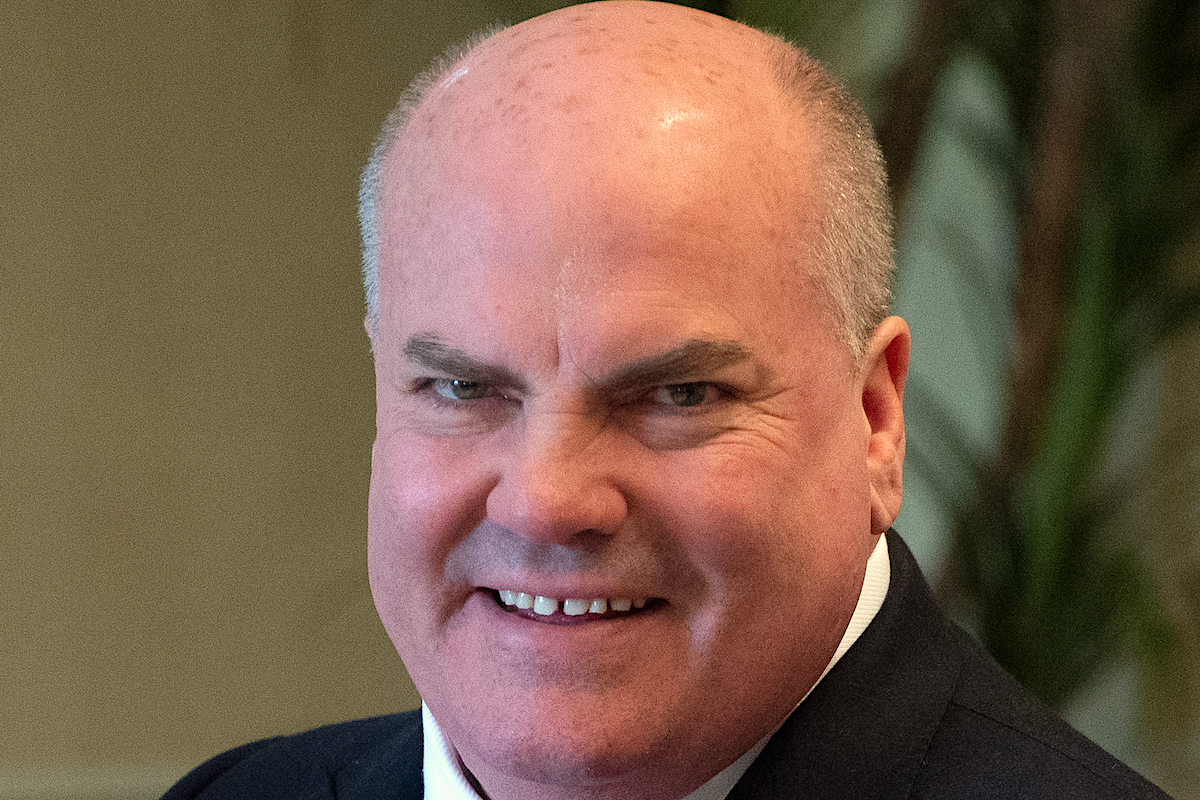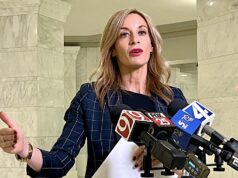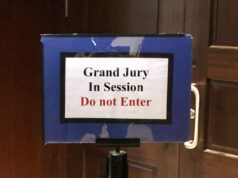
From Attorney General Gentner Drummond announcing his office is seeking bids from law firms to sue insulin manufacturers and pharmacy benefit managers to a controversial pending case about medical marijuana use during pregnancy, Oklahoma’s headlines are starting the new year litigiously.
Two major lawsuits were also filed in the past month. A pair of state representatives have sued a district attorney to release text messages about the pending execution of Richard Glossip. The case involves the Oklahoma Open Records Act and the use of an out-of-state attorney when filing the requests. The other major new lawsuit involves a proposed state question to raise the minimum wage in Oklahoma, where opponents argue the proposition is unconstitutional.
Rounding out the following legal roundup are updates on a few other cases and a brief explanation of the upcoming U.S. Supreme Court case to determine if former President Donald Trump will remain on Colorado’s presidential primary ballot.
If you have a tip on an interesting case or an important precedent that you think belongs in a future roundup, please email tristan@nondoc.com.
Drummond seeks support for suit over insulin prices
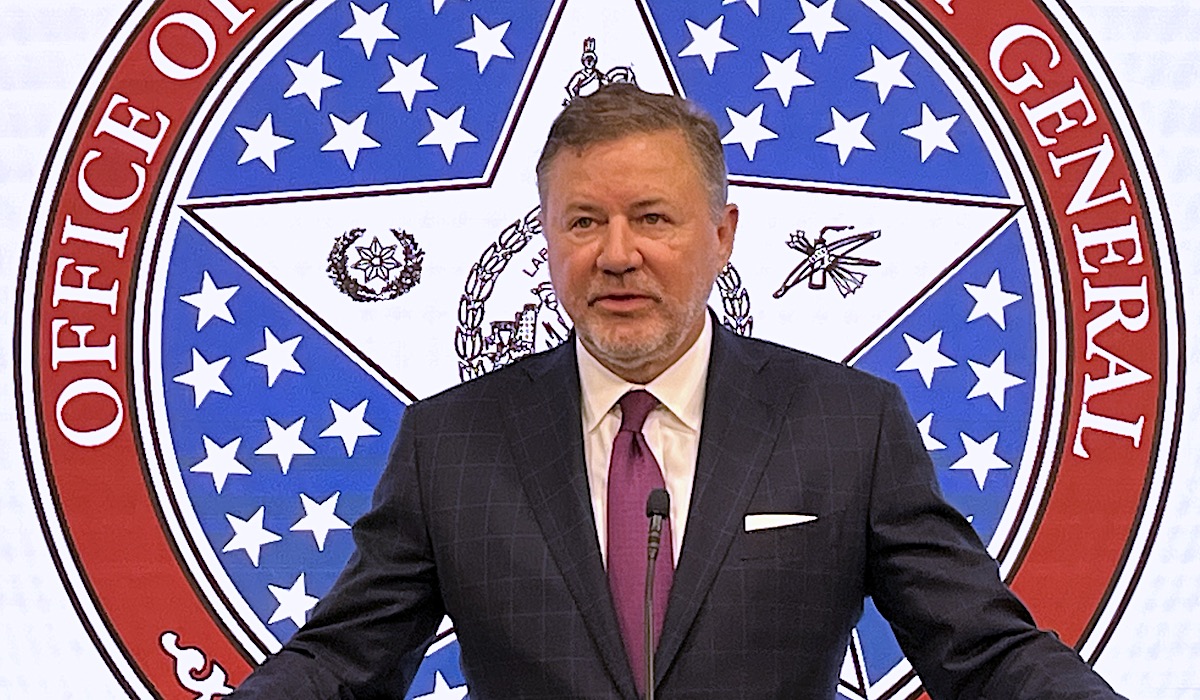
Attorney General Gentner Drummond announced that his office is “exploring potential legal action against insulin manufacturers and pharmacy benefit managers” for raising the price of insulin in the state.
In the announcement, Drummond released a request for proposal for law firms to apply to represent the state in the potential litigation. Firms have until 5 p.m. Friday, Jan. 26, to submit their applications to the Attorney General’s Office.
In a Jan 5. interview with KFOR, Drummond referred to insulin manufacturers as “effectively an oligopoly.”
“In the absence of free market and in the absence of self-regulation by these (companies) that are prioritizing their profit over the health of Oklahomans and their other consumers, it requires state action,” Drummond said in the interview.
While the Oklahoma Legislature capped some insulin prices with HB 1019 in 2021, the bill was limited to capping the price of insulin purchased through health insurance providers. Oklahomans without health insurance can be charged higher prices than the $30 for a 30-day supply and $90 for a 90-day supply price set by the Legislature in 2021. While there are multiple proposals to cap insulin prices at the federal level, none has been approved by both chambers of Congress so far.
More than 390,000 Oklahomans have been diagnosed with diabetes, putting the state at ninth in the nation by diabetes prevalence, according to a 2023 state report.
Reps. McDugle, Humphrey sue District Attorney Jason Hicks
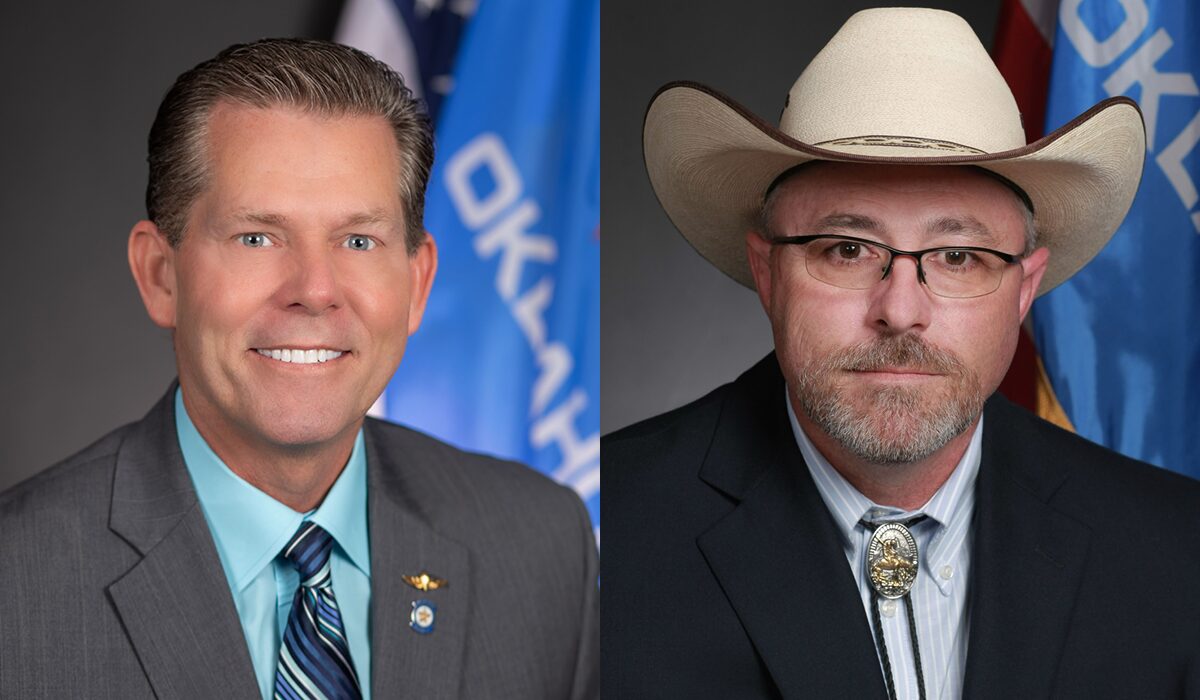
State Reps. Justin Humphrey (R-Lane) and Kevin McDugle (R-Broken Arrow) filed a lawsuit against District Attorney Jason Hicks alleging he violated the Oklahoma Records Act by refusing to provide text messages and emails involving an April 2023 Oklahoma Pardon and Parole Board hearing. In his office’s Jan. 5 response, Hicks denied the allegations and moved for the lawsuit to be dismissed.
The dispute stems from text messages and emails that Hicks allegedly sent involving Richard Glossip’s April clemency hearing before the Pardon and Parole Board. As referenced in a story about the lawsuit from Oklahoma Watch‘s Keaton Ross, other district attorneys did provide documents in response to the open records request.
Oklahoma Voice‘s Barbara Hoberock also reported that Glossip’s execution has been on hold pending a review by the U.S. Supreme Court after the Pardon and Parole Board denied Glossip’s clemency request in a 2-2 tied vote. Humphrey and McDugle allege that Oklahoma’s district attorneys are improperly coordinating their efforts to affect clemency decisions.
A 2009 opinion by then-Attorney General Drew Edmondson’s office concluded “e-mails, text messages, and other electronic communications made or received in connection with the transaction of public business, the expenditure of public funds or the administration of public property, are subject to the Oklahoma Open Records Act.”
However, Hicks has maintained that his text messages are not “records” as defined in the act. His brief also argues that Humphrey and McDugle never requested any documents from his office because they filed their requests through a third party, their attorney Christina Vitale.
But Hicks alleges that Vitale is not licensed to practice law in Oklahoma and therefore Vitale could not have been acting as their attorney when she filed the requests without engaging in the unauthorized practice of law. As a result, he argues, McDugle and Humphrey lack jurisdiction to bring their suit because they did not make the records request.
McDugle and Humphrey each told NonDoc that Hicks is exercising legal gymnastics in an effort to avoid revealing his messages.
“Mr. Hicks’ response is a typical response from an attorney who wants to slam everyone else’s butt for doing the exact same things he is doing right now,” said McDugle, who believes Richard Glossip is innocent. “He is trying to hide from giving us any information because there’s something there, so he’s using slick attorney talk to try to get out of it.”
Humphrey, an advocate for fundamental changes to Oklahoma’s criminal justice system whose recent claims alleging that district attorneys are “conducting a money laundering scheme” were criticized as being “neither supported by facts nor law,” called Hicks’ argument “fraudulent” and “piss-poor.”
“It’s smoke and mirrors,” Humphrey said. “I think he’s been caught with hand in the cookie jar, and I think he’s saying just about anything he can to avoid having to produce those records.”
Hicks told NonDoc that he was considering whether to retain outside counsel to help handle the lawsuit.
“Right now, I’m not willing to say anything for the record except I’m looking forward to addressing it in a court of law,” Hicks said. “So we’ll see.”
McDugle, who said he supports the concept of making some legislator communications subject to the Open Records Act, said he has also requested communications made by Tulsa County District Attorney Steve Kunzweiler. He said Kunzweiler’s office signaled that it may fulfill his requests.
“If he doesn’t provide what he needs to provide there, we’ll file another lawsuit against him,” McDugle said.
Minimum wage state question faces legal challenges
Proposed State Question 832 would increase Oklahoma’s minimum wage to $15 from $7.25 an hour by the year 2029 and set the minimum wage to rise automatically with inflation starting in 2030. But the potential state question is facing its first major hurdle in the form of a lawsuit challenging its constitutionality.
Opponents of the proposed initiative petition, including the State Chamber and the Oklahoma Farm Bureau, argue that it violates the “nondelegation doctrine” and that its “gist” is misleadingly written. Attorney General Gentner Drummond’s office also filed a brief opposing the state question application on the same grounds.
The nondelegation doctrine is used by courts to limit the delegation of “legislative power,” or the power to make laws, to another agency or branch of government.
SQ 832 opponents argue that the petition’s proposal tying the minimum wage after 2030 to an inflation metric produced by the U.S. Department of Labor is an unconstitutional delegation of state power to “unelected bureaucrats” who prepare the annual metric.
In their response, proponents say existing Oklahoma law functionally delegates that authority to the federal government now, arguing that SQ 832 “reclaims” state authority.
“At $7.25 per hour, Oklahoma’s minimum wage is one of the lowest in the nation,” attorneys for proponents Kelsey Cobbs and Dustin Phelan wrote. “This is because the Oklahoma Minimum Wage Act (…) sets Oklahoma’s minimum wage at ‘the current federal minimum wage,’ whatever that may be — and the federal government has not raised its minimum wage in nearly 15 years.”
The case is set for oral arguments in front of the Oklahoma Supreme Court at 10 a.m. Wednesday, Jan. 31.
Court looks at legality of medical marijuana use during pregnancy

Oklahoma ranked fourth nationally “for punitive or forced interventions against women in connection with their pregnancies, including arrests and involuntary commitment to treatment between 2006 to 2020,” according to reporting from The Frontier and the National Advocates for Pregnant Women. Multiple women in Oklahoma face charges for prescribed medical marijuana use during pregnancy.
Now, the Oklahoma Court of Criminal Appeals is examining the situation with the case Oklahoma v. Moreau. Mikayla Kassandra Moreau was charged in Kay County with one count of felony child neglect in June 2021 when THC was found in her child’s system after birth. Kay County District Attorney Brian Hermanson alleges Moreau admitted to using prescribed medical marijuana up to the fifth or sixth month of her pregnancy.
After two years of hearings, Kay County District Judge Lee Turner granted a motion to squash the charges after defense counsel argued the state failed to prove Moreau used an illegal drug since she had a valid license to purchase THC products. The statute Moreau is charged under requires illegal drug use to sustain a charge of child neglect.
Hermanson appealed, and now the appellate court will weigh in on whether medical marijuana use with a license during pregnancy meets the definition of child neglect in the state of Oklahoma
As sentencing lingers, judge recuses in Phil Albert case
Former University of Oklahoma Regent Phil Albert has a new judge overseeing his federal criminal case after Oklahoma Northern U.S. District Judge Gregory K. Frizzell recused himself from the case Dec. 20.
RELATED
Former OU regent Phil Albert pleads guilty, faces up to 5 years in federal prison by Michael McNutt
In March 2023, Albert pleaded guilty to evading more $1 million in income taxes tied to money he allegedly embezzled from Pelco Structural, the company he ran as president and managing member for years.
Once one of the largest political donors in Oklahoma, Albert was accused of having the company’s accountant cut him large checks that were recorded under the designation, “Cost of Sales-Steel.”
Federal case records include no public documentation explaining Frizzell’s recusal. Asked about the judge’s decision to withdraw from the case after the plea agreement but before sentencing, Frizzell’s courtroom deputy told NonDoc that judges “will recuse” from a case “if they have a conflict.”
Asked the details of Frizzell’s presumed conflict in Albert’s case, the staff member responded, “I don’t have the answer to why.”
Albert’s case was reassigned to Chief U.S. District Judge John F. Heil III. A tax evasion conviction carries no minimum prison term, a maximum term of five years and a fine of not more than $100,000.
In addition to a possible fine, Albert was ordered to pay $1,000,232 in restitution to the IRS and $2,615,750 in restitution to Pelco, according to court documents filed in U.S. District Court for Northern Oklahoma in Tulsa.
Fount Holland, Sean Roberts lawsuit settled
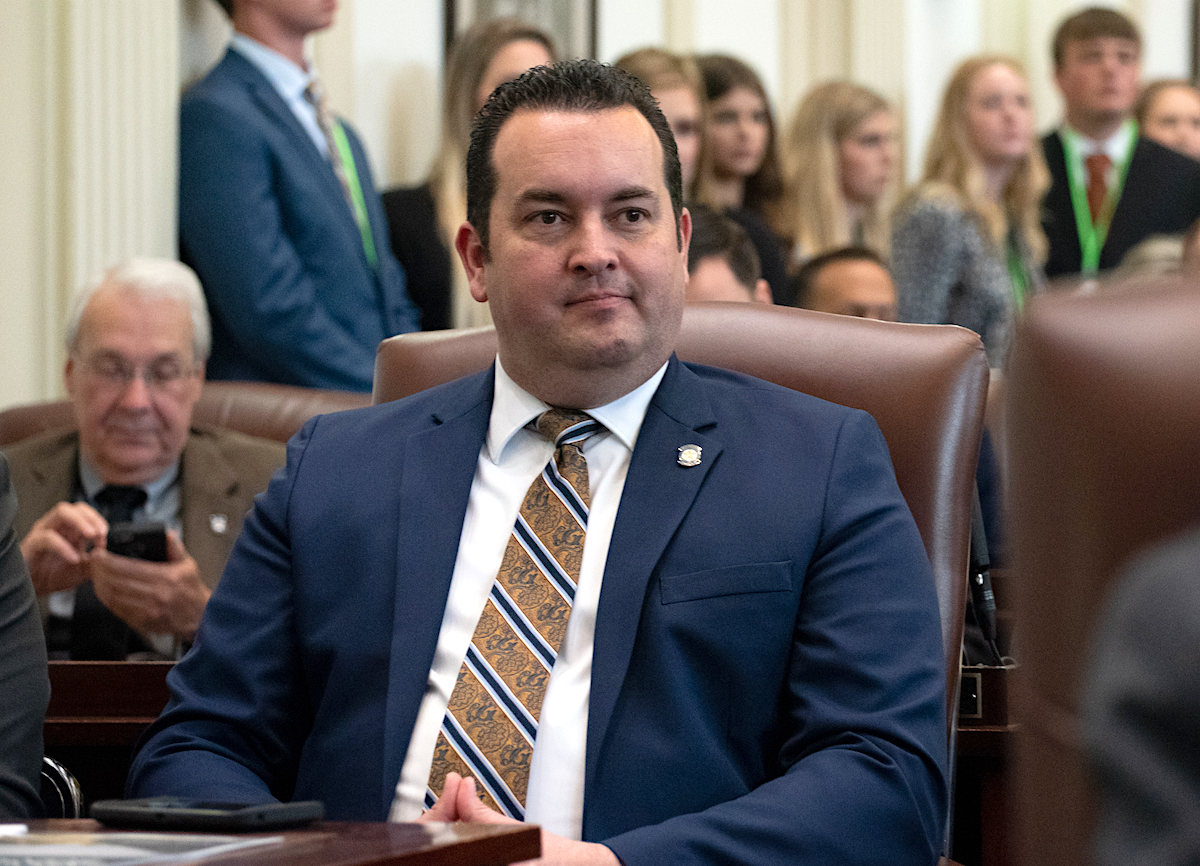
In the conclusion of a lawsuit involving prominent political consultant Fount Holland and former Rep. Sean Roberts, the Oklahoma Court of Appeals found Jan. 9 that Roberts did not prove that Holland engaged in racketeering. The dispute stemmed from a libel lawsuit filed by Holland against Roberts in Osage County District Court. Roberts counter-claimed that Hollard had engaged in a pattern of racketeering “in a scheme to destroy his political career,” according to the court’s ruling.
Roberts and Holland, a principal with Campaign Advocacy Management Professionals, settled the dispute in December, and both parties requested that the appeal be dismissed. However, the court declined to dismiss the case and issued a ruling finding that Roberts’ claim was not barred by the statute of limitations, but that he had failed to prove a pattern of illegal behavior for racketeering.
A soft-spoken conservative who could not convince the Oklahoma State Election Board that he went by the nickname “The Patriot” during a failed 2022 run for commissioner of labor, Roberts alleged that Holland engaged in a pattern of racketeering by extorting Roberts, engaging in mail fraud and wire fraud. The court found that Roberts did not prove the allegations of mail fraud or wire fraud, but did find that he pleaded enough facts to show a claim of extortion. Importantly, the court did not find that Holland actually engaged in extortion, only that Roberts provided enough evidence that a lawsuit on the extortion claim could have continued.
The extortion claim stems from an incident in 2010 where Roberts alleged that “Holland threatened that, unless hired, he would ensure Roberts would have a primary opponent that would trash Roberts’ reputation, and his political career would be ended.” Roberts did have four primary opponents later that year, but he won reelection.
Holland and his attorney, Taylor Burke, declined to comment on the settlement, although Burke confirmed that Roberts posted an apology on Facebook. Although it appears to have been deleted since, the post read:
I, Sean Roberts, acknowledge that my campaign posts on social media and statements made by my campaign regarding Found Holland and Campaign Advocacy Management Professionals were mistaken. These statements were made during the middle of a highly contested election where emotions ran high. I express my utmost regret and remorse for my campaign making these statements to Mr. Holland and Mr. Holland’s family and friends. My intent during my campaign was to do what I believed was in the best interest of the state of Oklahoma and was never to hurt anyone. I am hopeful that Mr. Holland will accept my apology and we can move forward from this.
Roberts did not respond to a message seeking comment prior to the publication of this article.
Holland, meanwhile, is still pursuing a separate libel lawsuit against former congressional and legislative candidate Jarrin Jackson, who infamously used a rifle to shoot a printer he had labeled “Dominion” in reference to voting machines. Holland alleges that Jackson distributed campaign material that made disparaging and false statements about him and his company.
Jackson quickly appealed the case under the Oklahoma Citizens Protection Act to the Oklahoma Supreme Court, which has yet to rule on the issues, including a document filed by Jackson himself titled, “Notice of reservation and contract for fundamental fairness.” In the filing, which Jackson directed in service to Oklahoma Supreme Court justices, he appears to object to the state court’s jurisdiction for a lawsuit against him.
“If you believe I am wrong, you may submit, evidence, submitted under penalty of perjury and postmarked within seven days receipt of this notice, to the address below, of the constitutional provisions authorizing you to violate my liberty, or, by tacit acquiescence, you agree to all statements herein, and this notice shall stand against you as you did violate my liberty with full knowledge, malice, and intent to breach of trust of the Oklahoma Constitution,” Jackson wrote. “I reserve the right to arbitrator of my choice. You may trample my rights for a fee of $1 million, upon my express consent, agreed to immediately upon receipt of this notice. I, by right, levy a daily fine of $5,000, beginning the day you fail to declare the law publicly and ending when remedy is ordered or I choose to execute this contract.”
The lawsuit remains active, with discovery delayed in district court pending the Supreme Court’s ruling.
Still need more? Other Oklahoma tidbits to note
Underscoring the hectic nature of the Oklahoma legal landscape, other interesting and developing stories worth watching include:
- The National Labor Relations Board dismissed an attempt to decertify the Nichols Hills Starbucks union election to join the Starbucks Workers United on Dec. 29. Alex Gatley of the Oklahoma City Free Press reported the details and shared a copy of Carla Coffman’s decision.
- A bench warrant was issued for former Tulsa police officer Deangelo Reyes on Jan. 2 after he failed to appear at his latest court hearing. Reyes resigned in 2022 after accusations of sexual assault. He faces one charge of forcible sodomy, according to court records.
- The Oklahoma Court of Criminal Appeals stayed the execution of James Ryder, originally scheduled Feb. 1, for 100 days in order to allow for a mental competency hearing. Oklahoma law bars the execution of someone who is unable to understand the reason they are to be executed and that their execution is “imminent.” According to the Associated Press, Pittsburg County District Court Judge Michael Hogan will oversee Ryder’s competency hearing.
- Attorney General Gentner Drummond testified to the U.S. House of Representatives about immigration and crime during the first impeachment hearing for U.S. Secretary of Homeland Security Alejandro Mayorkas. Video of the full hearing is available on YouTube.
Follow @NonDocMedia on:
Facebook | X | Text or Email
Trump’s ballot qualifications up for appeal
In legal news making national headlines, Colorado and Maine are attempting to remove President Donald Trump from their presidential primary ballots. The Colorado Supreme Court ruled that Section 3 of the 14th Amendment disqualifies Trump from holding the office of president and that state law barred him from appearing on the ballot. The Maine secretary of state made a similar decision that is being appealed in Maine state courts.
The U.S. Supreme Court is scheduled to hear an appeal of the Colorado ruling Thursday, Feb. 8.
The prohibition on insurrectionists holding office is not a well-developed part of constitutional law. It was adopted after the Civil War to bar former Confederates from office and was used several times in the 19th century. In the 20th century, the 14th Amendment was invoked to bar Victor L. Berger twice from reassuming office in the U.S. House of Representatives. (A prominent socialist politician who opposed America’s involvement in World War I, Berger had been convicted of violating the Espionage Act of 1917. But even though the U.S. Supreme Court vacated the conviction, Congress twice refused to seat Berger after Wisconsin voters elected him.)
Since Jan. 6, 2021, multiple challenges have been filed to disqualify political candidates using Section 3 of the 14th Amendment, but so far only Couy Griffin, a New Mexico county commissioner, has been successfully disqualified under the amendment.









